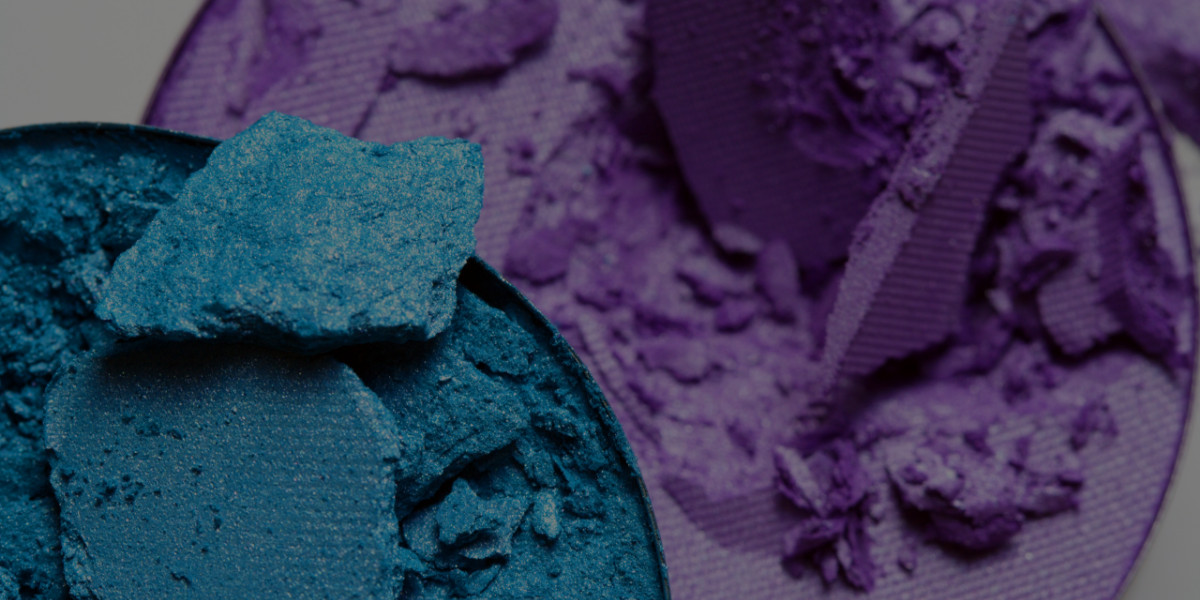We’ve given you the rundown on how to find models and what to put in your portfolio, and maybe you’re even working on a unique styled shoot to really show off your talents. Now that you’ve got some content, though, where do you go next? Should you stick with print or go for an online makeup artistry portfolio? Both? And how do you build an online portfolio anyway?
You’re a professional makeup artist, not a computer programmer (although if you do happen to be both, well, congratulations!), so the prospect of creating an online portfolio can be a little daunting. Luckily, there’s a ton of different sites that let you create a portfolio, blog, or website with only a little more hassle than it took to create your Twitter account. We’ve rounded up our top picks for the best portfolio-building sites, so read on to figure out what site is best for you!
Yes, it can be this easy. Instagram won’t give you a professional portfolio, of course—and we don’t suggest you rely only on Instagram to showcase your work—but if you’re looking to spread your reach, it’s an awesome place to start.
Think of Instagram as your casual portfolio. Just like with professional portfolio, you’ll want to post good quality pictures of your very best work, but that doesn’t have to be your whole profile. After all, Instagram is a form a social media—so use it to get a little more social. Sharing shots of your work in progress, pictures of your own favorite looks, images of your kit or setup, or just photos of your daily life can help give your online presence a personal touch that’ll have your followers feeling like they really know you.

Remember to keep things professional, though. There are probably some parts of your personal life that you don’t want to share with prospective clients, so just be selective about what you post.
Cost: Totally free.
Behance
This site is designed for artists of all kinds. It’s been around since 2006 with the goal of creating a single platform to house the creative world’s work, so that all a company needs to do is browse through Behance’s collection of portfolios to find the kind of work they’re looking for.
It definitely has a wide reach—project views on Behance are over 58 million. Plus it’s amazing for housing huge, high quality images that show off all the intricate details of your work. The downside is that there’s only one template for your portfolio with no real customization and minimal personal information. Great for showcasing your work—less so your personality.
Behance does have some other cool features, though, like a social interaction features that allows others to provide feedback on your work. This may not seem like a big deal, but with 1 million other creative professionals using Behance, it means the feedback you’re getting could be from a makeup industry pro.
Still unsure? Check out some of the projects posted in the makeup arts section to see if it’s for you.
Cost: Free—unless you go for the more advanced Behance ProSite portfolio site builder, which varies in price.
Format
If you’re set creating a site that’s totally customizable, look no further than Format. Format’s flexibility lets you create a portfolio to house within a custom site that could also easily include a blog, detailed information about your services, and contact info. There are so many features that we’re just going to list them off right here:
- Attractive, interactive themes that are totally customizable (and automatically formatted for mobile)
- A selection of page types and layouts
- User-friendly interface—a definite asset for those of us with no coding experience
- Custom domain name and favicon (the little icon that appears beside the URL in the search bar)
- Image-focused blogging can be built right into your portfolio
- Optimized for search engines
Sound like a lot of work? Well, yeah. Format may be a user-friendly platform, but customizing all its features does create some extra work for you…

And make sure to check out the pricing before you commit, because your price plan may restrict the number of pages, images, and videos you can include on your site. The basic plan includes 50 pages, 100 images, and 100 videos. But don’t worry—you do get a 14-day free trial to test-run Format before you commit.
Cost: Ranges from $5.75—$20.75 per month.
Portfoliobox
Portfoliobox is sort of similar to Format. Its main purpose is for creating portfolios, but unlike Behance, your portfolio comes in the form of a customizable site. Portfoliobox lets you create a site that can include galleries, blogs, and other pages, unrestricted by any sort of overall theme.
Plus, Portfoliobox includes an easily integrated e-commerce store. This won’t make a difference for many makeup artists, but for anyone thinking of starting their own product line (like our grad Vanessa Pressacco) it’s definitely an asset.
You can make a free account, but keep in mind that you’ll be limited in the number of images, products, and pages you can host, as well as missing out on many of the other extra features, like a custom domain, Google Analytics integration, and unlimited access to page design templates.
And watch out for some of the layouts. Portfoliobox features a whole host of cool minimalist designs, but it can come at the cost of a user-friendly experience for your site visitors. The slickest site in the world won’t do you much good if potential clients can’t find their way off the home page.
Check out these examples to get a better idea of whether it’ll work for you.
Cost: Choose between a basic account for free or a pro account for $6.90 per month.
Wix
This is another platform that’s super customizable. Plus, Wix makes it easy to get away with a free site that looks totally professional. There are some paid features, but it’s not too hard to get by without them, and they’re usually clearly marked.
Once you’ve picked a portfolio theme, there are tons of other small details you can customize to suit your portfolio needs. Wix has over 200 optional apps to let you connect your portfolio to social media, set up contact forms, create before-and-after photo comparisons, and more.

But watch out when you’re creating your site. Some Wix sites are Flash-based, which makes them tough for search engines to find. Instead, make sure you’re creating an HTML-based site. You don’t need to know all the technical details, but an HTML-based site is the way to go for letting potential clients find you as easily as possible.
Cost: Stick with a free account or get a premium plan ranging from $4.08—$24.92 per month.
So… Should I toss my printed portfolio?
No way! It’s a good idea to have a printed portfolio on hand for when you’re meeting with potential clients because it’ll give them something physical to flip through and provide a more personal experience than just scrolling through a publicly accessible website. Besides, Internet coverage isn’t universal (sadly) so a printed portfolio will keep you covered if you’re meeting a client somewhere with no Wi-Fi.

This helped me out so much. I never even considered on making a portfolio. I like that there are sites for what I want to do. It’s a wonderful feeling to know I am going to make my dream come true, even at age 48.
Happy to help, Tracey! There are lots of tools out there to support you in the more technical aspects of your makeup artistry career 🙂